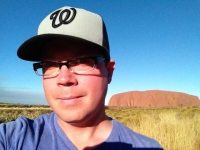Todd Kuiken

Senior Program Associate, Science and Technology Innovation Program, Woodrow Wilson Center
Dr. Todd Kuiken is a Senior Program Associate with the Science and Technology Innovation Program at the Woodrow Wilson Center where he explores the scientific and technological frontier, stimulating discovery and bringing new tools to bear on public policy challenges that emerge as science advances.
He has numerous projects evaluating and designing new research and governance strategies to proactively address the biosafety, biosecurity and environmental risks associated with synthetic biology as part of the Wilson Center’s Synthetic Biology Project. In addition he is collaborating with DIYbio.org on a project to ensure safety within the rapidly expanding community of amateur biologists where he analyzes the potential biosafety and biosecurity threats associated with such a diffuse community. He also works with the Project on Emerging Nanotechnologies, also at the Woodrow Wilson Center, where he focuses on public policy and the environmental health and safety aspects of nanotechnology.
Dr. Kuiken is a regular speaker on public policy issues related to nanotechnology and synthetic biology and has published a number of articles on nanotechnology, synthetic biology, and mercury cycling. After completing his B.S. in Environmental Management and Technology at Rochester Institute of Technology he worked directly with renowned scientists on the biogeochemical cycling of mercury at the Oak Ridge National Laboratory. He earned an M.A. in Environmental and Resource Policy from The George Washington University concentrating on the scientific, economic and community development aspects of environmental issues. While there he worked at various environmental non-profits including the National Wildlife Federation where he worked within the Clean the Rain campaign that dealt with the environmental and public health threats associated with mercury pollution. Dr. Kuiken earned his Ph.D. from Tennessee Tech University where his research focused on the air/surface exchange of mercury associated with forest ecosystems. As part of his dissertation he synthesized these results with other studies associated with mercury cycling, public health threats and policy alternatives to bring attention to the threats and need for an improved public policy dealing with mercury pollution.
